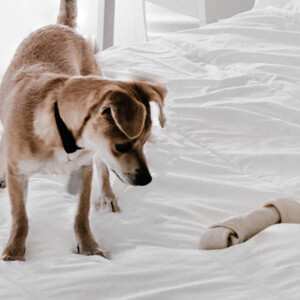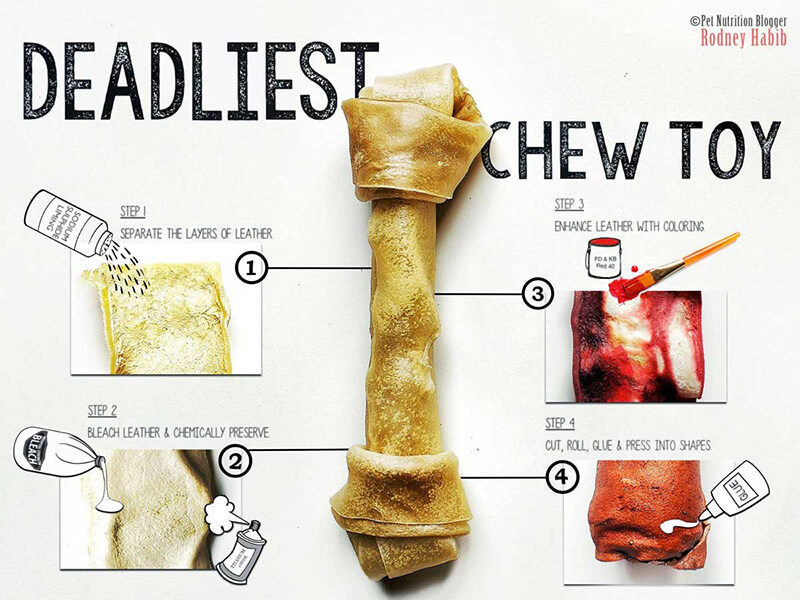Dangers of Rawhide for Your Dog

Dangers of Rawhide for Your Dog
Dogs naturally love to chew on things. Giving them a toy to chew on is a great way to keep them occupied while also cleaning their teeth. Rawhide chews have long been a popular treat for dogs, but in recent years, many dog owners have become concerned about the dangers of rawhide. See the image below.

Bacterial Contamination
Rawhide is made from the inner hide of a horse, cow, or buffalo. Many rawhide chews available in the United States are made from cowhide, which is taken from slaughterhouses where animals have been killed for food. The hides are then soaked in chemicals, washed, and turned into chew toys. During the manufacturing process, it’s possible for rawhide to become contaminated by bacteria like E. coli or Salmonella. Although this type of contamination isn’t very common, it’s always a good idea to rinse rawhide chew off in water before giving them to your dog.
Choking Hazards
Choking is one of the biggest dangers of rawhide. Rawhide chews are meant to break apart into small, soft pieces as your dog chews them. If you have a large dog with a strong jaw, however, they can break off larger chunks and swallow them. The pieces then get caught in their esophagus. For young puppies and older dogs who chew more softly, there is less risk involved.
Digestive Issues
Larger pieces of rawhide can also make it down into the stomach or intestines and get stuck there. If the blockage is serious enough, a veterinarian may have to perform surgery to remove it. Worst case scenario, these blockages can lead to death. Smaller pieces of rawhide may not cause a dangerous blockage, but they can stay in the digestive system for a long time because rawhide is very difficult to digest. This can cause your dog to experience gastrointestinal issues like diarrhea and vomiting.
Some dogs may be allergic to the contents of a rawhide chew. Preservatives and chemicals are often used in the manufacturing process, which can irritate your dog’s stomach (see image above). Rawhide isn’t considered a food item, so it isn’t regulated by law in the same way as dog food. That means it’s hard to know what type of chemicals have been used.
The dangers of rawhide can depend on your dog’s age and breed. It’s important to consider previous digestive issues when deciding whether to give them to your dog. If you’re uncertain about the risks rawhide poses for your dog, consult your veterinarian for advice.
For more information about rawhide treats or general questions you can contact:
Christi Phillips, CPDT with Posh Paws Pet Care, LLC
843.900.0438
Visit our website at PoshPawsPetCareSC.com
Or send us a note from our contact page here.
To read the official ASPCA position on rawhide and other chew toys, you can read the ASPCA statement here.
